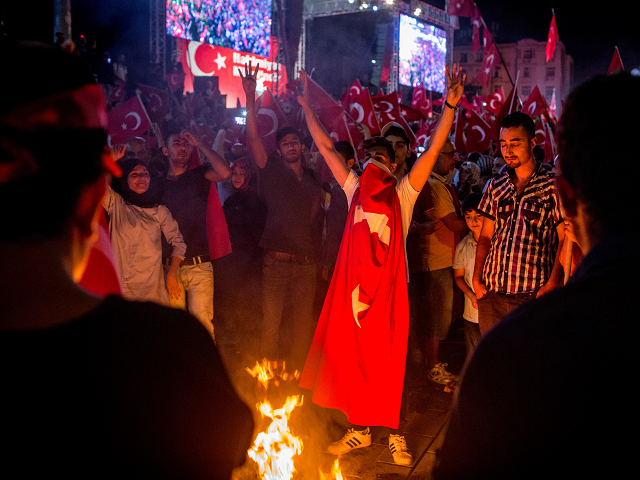Turkey has announced it is suspending their involvement with the European Convention on Human Rights and the European Court of Human Rights (ECHR) in the wake of the failed coup last week, as recriminations against accused plotters continues to grow.
The state-run Anadolu news agency quoted remarks by Turkey’s Deputy Prime Minister Numan Kurtulmus who said the move was akin to France’s derogation from the ECHR in November 2015 after the Bataclan attacks.
Article 15 of the Convention allows signatories to suspend certain parts of the act in wartime or national emergencies. Yet it clearly states that the court can still rule on whether the break is legitimate, and in no case can the right to life, ban on torture and degrading treatment, ban on slavery, or extrajudicial punishment be suspended.
Yet the behaviour of Turkey towards accused plotters as it enacts a state of emergency has raised serious questions over human rights abuse — including the use of torture. Analysis by the Turkish correspondent of Germany’s most respected broadsheet newspaper Die Welt states that considering the usually repressive atmosphere in Turkey under President Recep Tayyip Erdogan: “the state of emergency is going to have to work hard to get noticed at all”.
The article states that under the new powers granted by the state of emergency Erdogan may “rule by decree”, and has powers including the ability to: “suspend the freedom of assembly and restrict the press, impose curfews and set the curriculum of schools and universities, security forces may check out inspections at any time and suspects can be detained for two days”.
Correspondent Deniz Yücel also criticises Turkey’s “misplaced” comparison to France in their suspension of the ECHR, remarking that despite the break from the court “Francois Hollande is not suspected of wanting to install an autocratic one-man regime”.
The analysis also raises questions of torture being used in the wake of the plot by pro-government forces, citing the emergence of images of a senior Turkish general, bloodied and beaten, who this week confessed to being a member of the Gullenist underground movement which has been officially blamed for the attempted coup. Although Yücel is careful to make no direct accusation, he does assert that after the pictures of “bandaged hands and abdomen, head bandage and facial injuries — the question arises as to the circumstances under which this [confession] may have come about”.
The report states that torture had been common following the 1980 coup, with “tens of thousands of people tortured in prisons”.
Concerns about torture have also been expressed at the top of Europe’s bureaucratic institutions. Council of Europe Commissioner for Human Rights Nils Muižnieks said in a statement: “The staggering number of civil servants who have been arrested or dismissed in such a short period of time following the attempted coup also raise serious questions regarding equity and due process.
“I am also alarmed by images showing torture and ill treatment being inflicted on suspected perpetrators, as well as signs of torture on persons taken into custody, which were published in various media… I will be closely monitoring the situation in the coming days, which will be crucial for the future of democracy, rule of law and human rights in Turkey”.
The Turkish government responded almost immediately to the remarks through their ambassador in Brussels Erdogan Iscan, who in a strongly worded letter called the remarks “prejudicial” and claimed the “Turkish judicial system continues to function in full observance of its obligations”.
Turkey has recognised the rights of citizens to petition the ECHR to have their cases heard since 1987, and has had more ECHR judgements passed against it than any other European nation, according to analysis by the London School of Economics. Between 1959 and 2011, over 40-per-cent of all freedom of expression cases heard by the ECHR were brought from Turkey.
Follow Oliver Lane on Twitter: Follow @Oliver_Lane or e-mail to: olane@breitbart.com

COMMENTS
Please let us know if you're having issues with commenting.